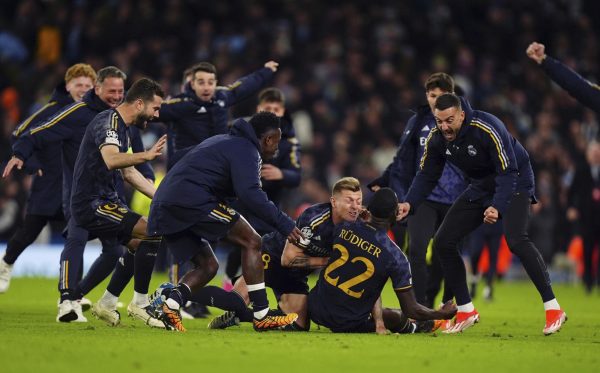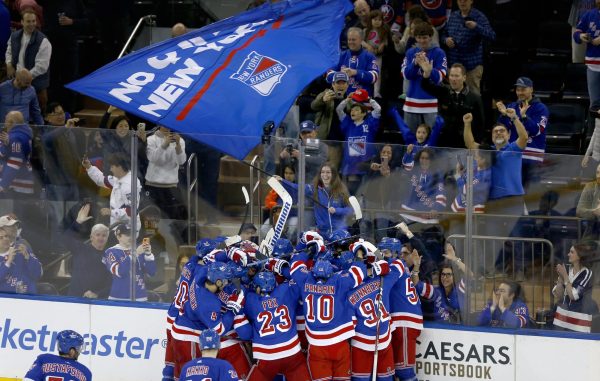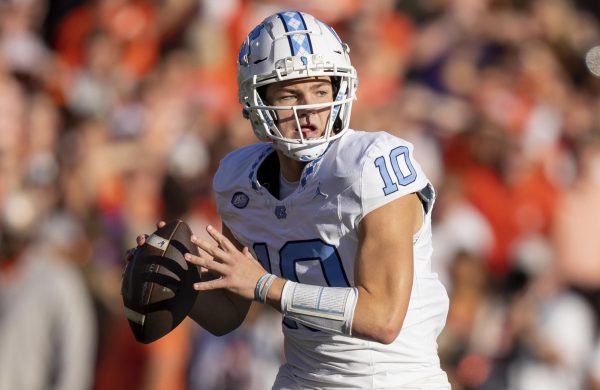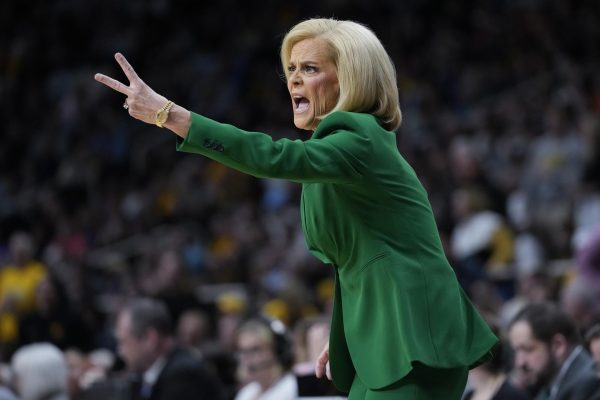Hope Solo’s Forgotten Case of Domestic Violence
When it comes to women’s soccer, the spotlight has been on U.S. Women’s National Team goalkeeper Hope Solo — but not necessarily for the right reasons. Fans and the media have been praising Solo for her major role in the team’s recent wins and for setting a new U.S. record for most career shutouts. What’s wrong about that? She was arrested and charged with two counts of domestic abuse against extended family members three months ago, and the issue seems to have blown over entirely with the U.S. Soccer Federation. Solo has a trial date set in November — not until after the Women’s National Team has the opportunity to secure a spot in the 2015 FIFA Women’s World Cup, conveniently enough — and until her legal situation is sorted out, she is set to remain in goal.
It’s undoubtedly disturbing when an athlete is involved in a domestic violence case and the association merely looks the other way, but this concept is all too familiar in American sports leagues. This has been a prominent issue of the past, especially in the NFL, but upset fans have turned the spotlight toward these issues and ignited some change; many current cases involving professional football players have resulted in serious consequences. Baltimore Ravens running back Ray Rice was found guilty of domestic violence and was subsequently released from the Ravens and suspended from the NFL. Both Carolina Panthers defensive end Greg Hardy and Minnesota Vikings running back Adrian Peterson were recently convicted of similar charges and have now been placed on the commissioner’s exempt list. Neither is going to see the field before his trial date. NFL spectators are finally seeing some punishment, and they’re pretty satisfied with it.
Why, then, does Solo remain in the net for U.S. Soccer? She remains an idolized figure in the eyes of the public, still portrayed as an inspiration for young female athletes across the country. According to the league’s head of communications, Solo should keep playing regardless of any issues in her personal life because of her hard work and strong abilities as an athlete. While this may seem fair, Americans, particularly football fans, have made it clear that they don’t want to stand behind athletes who are guilty of domestic abuse.
It’s therefore somewhat unsettling that Solo’s case is being handled differently, and that the U.S. Soccer Federation seems to be getting away with it thus far. There’s some discussion about this being an issue of double standards, and that perhaps if the incident involved a male soccer player the consequences would be different. There’s also speculation that playing without Solo is too detrimental to the team’s chances of qualifying for the 2015 Women’s World Cup, and that the league likely would have suspended her if she were a less valuable player.
It’s hard to find satisfying justification, however. The big issue with this case is the low public awareness. Maybe something would change if soccer fans cared about this problem, or perhaps if they even knew about it. The media coverage on Solo’s case has been minimal ever since the incident occurred three months ago. All attention has been on the charges in the NFL, but the fact is that the issue of domestic violence and lack of consequence for professional athletes extends far outside of one league and doesn’t revolve entirely around men either. The lack of discussion around Solo’s case may be due partly to the lack of attention that women’s sports receive in general, which poses a problem when it means the public will ignore serious, albeit rare, issues such as this one. However, with the recent growing attention on the NFL and domestic abuse, the focus is being broadened and the media is just beginning to shed some light on Solo’s situation.
With media and public awareness of this case now on the rise, the main concern becomes the message U.S. Soccer is sending with its actions, or lack thereof. The implication seems to be that an athlete should receive immunity from professional consequences as long as he or she is valuable enough. Now that media coverage in domestic abuse is increasing — and, just as importantly, expanding outside of the NFL — it’s up to informed citizens to decide if U.S. Soccer needs to suspend Solo, and to try to make a change if they feel there should be one.








